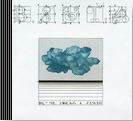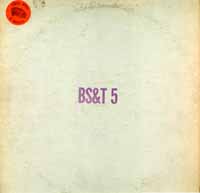BS&T 4


Track Listing
Go Down Gamblin' (4:17)
Cowboy's and Indians (3:10)
John The Baptist (3:38)
Redemption (5:14)
Lisa Listen To Me (3:03)
A Look To My Heart (0:54)
High On A Mountain (3:16)
Valentine's Day (3:59)
Take Me In Your Arms (3:30)
For My Lady (3:25)
Mama Gets High (4:12)
A Look To My Heart--Duet (2:09)
Produced by Don Heckman, Bobby Colomby, and Roy Halee
Engineered by Roy Halee
Lineup:
David Clayton-Thomas: Vocals, Guitar (Go
Down Gamblin')
Bobby Colomby: Drums, Percussion
Jim Fielder: Bass, Guitar (Redemption)
Dick Halligan: Keyboards, flute, trombone
Steve Katz: Guitars, harmonica, mandolin.(Lead
vocal on Valentine's Day)
Fred Lipsius: Sax, Piano, Organ, Clarinet
Lew Soloff: Trumpet, Fleugelhorn, piccolo
trumpet
Chuck Winfield: Trumpet, Fleugelhorn
Dave Bargeron: Trombone, Tuba, Bass Trombone,
Baritone Horn, Acoustic Bass ("For My Lady," and
"Valentine's Day.")
Don Heckman: Clarinet and bass clarinet on "Valentine's
Day" and "For My Lady."
Michael Smith: Congas on "Redemption.'
Chart History:
Released June of
1971 (Columbia CK-30590), BS&T 4 peaked at #10 on the U.S. Charts two
months later in August. It was in the top 40 for 11 weeks.
Two singles were released, "Go Down Gamblin'"/"Valentine's Day," (Columbia
45427) which peaked at #32, and "Lisa, Listen To Me"/Cowboy's and Indians,"
which peaked at #73 on the U.S. Charts.
Billboard's July 3, 1971 review wrote:
Their first album
for the year, two months or so in the making, is worth waiting for.
Strong new material includes a David Clayton-Thomas special, vocal and
guitar, "Go Down Gamblin'." Other heavy cuts include "Cowboys And
Indians," Steve Katz's "Valentine's Day," Thomas' "Lisa, Listen To Me,"
and a wild redoing of the Isley Brothers "Take Me In Your Arms. (Rock Me
A Little While.)
William Ruhlmann of the All Music Guide writes:
Having relied largely
on outside song writing for its last two wildly successful albums, Blood,
Sweat, & Tears decided (as many groups had before) to bring some of
that song publishing income into the family by writing their own material.
Singer David Clayton-Thomas contributed the Top 40 hit, "Go Down Gamblin,"
and he and keyboard player Dick Halligan collaborated on another chart
entry, "Lisa, Listen To Me." Ex-bandleader Al Kooper even contributed
a track, "John The Baptist (Holy John." But side two was given over
largely to songs by guitarist Steve Katz that were substandard, and the
band's cohesion seemed to be disintegrating. Although the alum scraped
the Top 10 briefly and went gold, it marked the end of BS&T's period
of wide commercial success on records. By the next outing, Clayton-Thomas
had quit and the band's heyday was behind it.
(c) 1996 The All Music Guide.
Rolling Stone's Al Meitzer wrote:
"The best...Blood, Sweat,
and Tears album since the first..."
Producer Don Heckman writes:
Blood,
Sweat & Tears. Vitality, energy and inspiration. That's
what it's all about--channeling the powers of nine gifted performers into
a dynamic blend of song and spirit, of melody and rhythm.
We recorded in
San Francisco, with its glorious light, clean air, and brilliantly sparkling
Bay. A good place to make music. Some of the guys were already
there. Fred Lipsius rambling around his house, doing a marathon piano-playing
trip, 24-hours a day, non-stop. Jim Fielder, lean and laconic, impatiently
waiting for a new place near Muir Wood, and David Clayton-Thomas, writing
new tunes in his ultimate bachelor's digs--perched like an eagle's aerie
high in the hills of Marin Country. Roy Halee, master engineer and
co-producer, was just glad to be living in San Francisco, and enthusiastic
as a cherub about the bright new studios and spaceship recording console
Colombia had built for him. Dick Halligan commuted from Los Angeles,
flying in through the smog almost daily, usually carrying a new arrangement.
The rest of us moved West, en
masse, from cold and amp December New York City. Chuck Winfield and
Dave Bargeron--the quiet ones--came like a gypsy caravan, trailing wives,
children, and assorted pets. Bobby Colomby and Steve Katz reluctantly
left their houses and basketball courts and pool tables, and Lewie Soloff
somehow managed to convince an airline that his 14 trumpets and flugelhorns
really were part of his hand luggage.
Two months had been cleared
from our schedules by the most stringent methods--only one or two bookings
for the band, and for me, some midnight hour moonlighting to keep up my
writing commitments. Two months to produce an album that might match
the electric energies of previous Blood, Sweat, and Tears recordings.
We decided to go for as many
original pieces as possible. Given the range of backgrounds and skills
in the band, it seemed to me that the album should be a kind of seed-bed
for the future--a garden of music that would bloom with brightly colored
perennials. "Lisa, Listen To Me" came first, flowing with such good
vibrations that we knew the Karma was right. On "Go Down Gamblin',"
David holstered up his trust guitar (for the first time with BS&T)
and ripped out solo lines raunchy enough to quiver the walls in the adjoining
studio (no mean feat, considering that Santana was recording there).
"Redemption" came in a sudden,
almost magic rust. Everything jelled--the rhythm's furious drive,
a roaring, shouting horn section, and David's powerful vocal. There
never was a question of making another take. Steve's "For My Lady"
and "Valentine's Day," called for particularly sensitive treatment.
In both cases--Dick's arrangement of "For My Lady" and Freddie's chart
on "Valentine's Day"--the textures are richly impressionistic, filled with
the sounds of woodwinds and fluegelhorns. (And, on "Valentine's Day," Lew
finally got his long-awaited chance to play piccolo trumpet.)
"Cowboy's and Indians" was a
Halligan surprise; he just showed up with it one day. (The unusual sound
at the end, by the way, is made by Dave Bargeron, playing a low note on
his tuba and singing another note at the same time.) It took at least
two or three metamorphoses before we found the right frame for 'High On
A Mountain," and again it was Halligan's extraordinary scoring--almost
symphonic in character--that created the perfect setting for David's vocal.
"Mama Gets High" developed out of a half-joking conversation that Steve,
Dave Bargeron, and I had about the possibilities of a Dixieland-rock tune,
and "A Look To My Heart" celebrates Freddie's pleasure over the sense of
peace he has discovered since moving to San Francisco.
Two pieces came from outside
the band. Al Kooper and Phyllis Major's "John The Baptist" stimulated
some of Freddie's finest scoring, and the gutsy rhythm-secion surge on
the Isley Brothers' "Take Me In Your Arms," lets David get down to the
basics.
The old labels--Jazz-rock and
the like--are gone, replaced by the simple straight-forward idea of making
music. With nine players who share individual and common experiences
that include everything from Ars Nova to Bluegrass how can any other description
be adequate? (Taken from the sleeve of BS&T 4)
There also exists, a bootleg, put out by the "Trademark of Quality"
group. It seems to be a concert from the BS&T 4 era, around 1971,
and is said to have been recorded in Las Vegas. Here is a scan of
the cover, I'll work on getting a page up for it later.

Return
to the BS&T Discography Page
